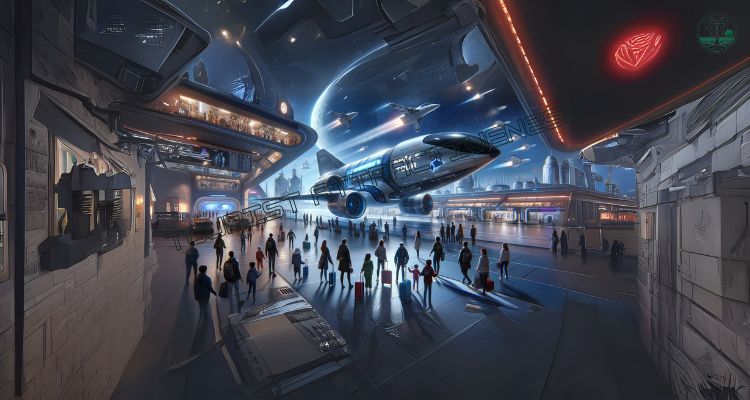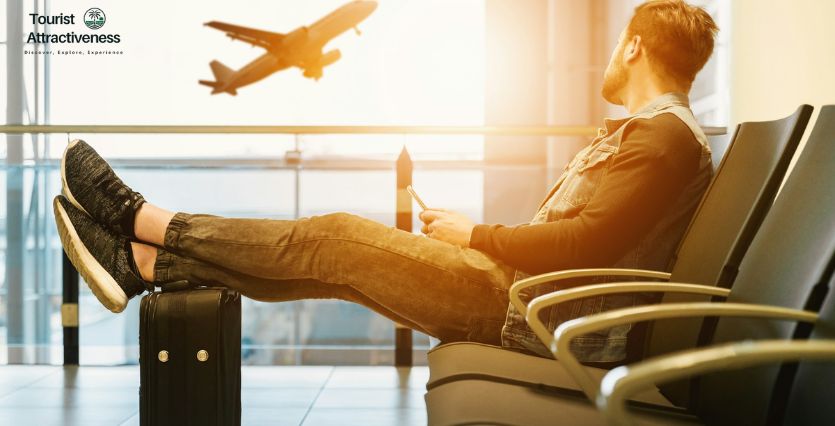Table of Contents
ToggleTravel is one of the greatest ways to learn. It takes you beyond the usual and throws you into new experiences. It lets you see different cultures, meet people from all backgrounds, and build values like patience and adaptability. Every year, the way we travel shifts, driven by global changes, new ideas, and fresh perspectives. As 2027 arrives, travel is transforming in ways that will redefine how we see the world and explore new places.
A Look at the Numbers: Travel in 2027
To understand how travel is evolving, let’s take a look at some numbers that highlight the trends shaping this industry.
| Travel Trend | 2023 | 2025 (Predicted) | 2027 (Forecasted) |
| Eco-Friendly Travel | 35% | 50% | 70% |
| Solo Travelers | 25% | 33% | 40% |
| AI-Based Planning | 20% | 45% | 65% |
| Virtual Tourism | 10% | 25% | 50% |
| Space Tourism Bookings | 1% | 5% | 15% |
The Rise of AI-Driven Travel Planning
Gone are the days when travelers relied only on guidebooks and travel agents. By 2027, AI is at the heart of how people plan their trips. AI-driven platforms analyze traveler behavior, suggest customized itineraries, and even adjust bookings in real time if plans change. It’s like having a personal assistant that learns from your choices and refines your travel experience over time.
- AI chatbots help book flights and hotels with better deals than human agents.
- Predictive analytics recommend destinations based on personal preferences.
- Language barriers are vanishing as AI-powered translators make communication seamless.
The Shift to Sustainable Travel
Sustainability is no longer just an option; it is a necessity. By 2027, eco-friendly travel dominates the industry. Hotels, airlines, and tour operators are under immense pressure to reduce their carbon footprint, and travelers are more conscious about the impact they leave behind.
- More airlines are investing in sustainable aviation fuel.
- Hotels are shifting to solar energy, smart waste management, and eco-friendly architecture.
- Travelers choose electric rental cars and trains over flights where possible.
Countries are also imposing stricter regulations to promote responsible tourism. The days of mass tourism without accountability are fading, making way for a more sustainable approach.
The Popularity of Slow Travel
People are realizing that the rush of ticking off as many places as possible in one trip often leaves them exhausted rather than enriched. In 2027, slow travel is becoming a movement. Instead of covering ten cities in ten days, travelers prefer staying longer in one place to experience its culture, cuisine, and local way of life.
- Workations (working while traveling) have made long stays more common.
- Authenticity matters more than attractions; people want to live like locals.
- Digital nomad visas make it easier for travelers to stay in a country for months.
The Role of Virtual and Augmented Reality in Tourism
Virtual Reality (VR) and Augmented Reality (AR) have stepped up in the travel industry. While these technologies won’t replace real travel, they are enhancing it in unexpected ways.
- People can explore a destination virtually before booking their trip.
- Historical sites use AR to recreate ancient cities and bring history to life.
- Museums allow visitors to experience exhibitions remotely in stunning detail.

This technology is especially useful for people who cannot travel due to financial or physical limitations. It also helps manage over-tourism by giving people alternative ways to explore famous sites.
Solo Travel is Booming
The concept of traveling alone was once considered intimidating, but by 2027, it is embraced more than ever. Solo travelers are no longer seen as lonely wanderers but as adventurers seeking personal growth.
- More women are choosing solo travel, feeling empowered by safer travel options.
- AI and smart security apps make solo trips safer than ever before.
- Travel communities connect solo travelers with like-minded people on the road.
The Emergence of Space Tourism
What once seemed like science fiction is now turning into reality. By 2027, space tourism is still expensive but more accessible. Companies like SpaceX and Blue Origin are refining space travel for civilians.
- Luxury space hotels are in development.
- Sub-orbital flights allow people to experience zero gravity.
- Demand is increasing as ticket prices slowly drop.

Although space travel is not mainstream yet, it is no longer a fantasy. The early 2030s may bring it within reach of more travelers.
Also Read: The Best Time to Travel to Mexico Beach, FL: Sun, Sand, and Serene Waters Await
The End of Traditional Travel Agencies?
With AI, personalized planning tools, and self-service booking platforms, traditional travel agencies are fading. But some specialized agencies still thrive by offering unique services like niche travel experiences and luxury concierge services.
- Agencies that focus on tailor-made, high-end travel are still in demand.
- Adventure and expedition travel companies cater to extreme explorers.
- Cultural and wellness retreats benefit from personalized planning services.
A New World of Travel Awaits
The travel landscape of 2027 is evolving faster than ever before. Technology, sustainability, and personal preferences are reshaping how people explore the world. The future of travel isn’t just about seeing new places; it’s about experiencing them in smarter, more meaningful ways. As the world continues to change, so does the way we discover it. The journey is just beginning, and the road ahead looks more exciting than ever.


